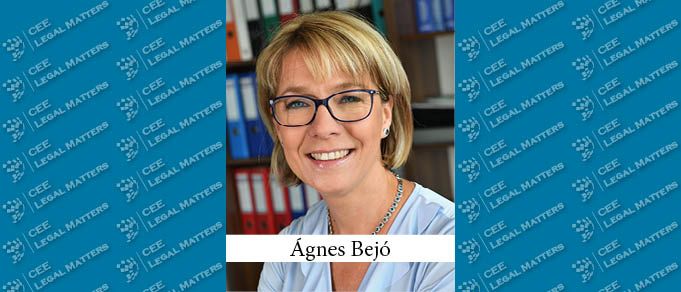From the deceptive quiet of early 2023 to a summer bustling with legal reforms and taxing challenges, Jalsovszky Partner Agnes Bejo sheds light on pivotal developments in Hungary ranging from the EU-mandated whistleblowing system to changes in the trust system, environmental responsibilities, and the shifting investment climate in the country.
“For us the year kicked off quite slowly, which was deceptive in hindsight,” Bejo begins. “Then we soon found ourselves swamped with work, especially during the summer.” Noting numerous legal developments, she highlights “the new whistleblowing system, which was implemented as per the EU directive. The initial scope was remarkably broad, leading to a need for revisions before final acceptance,” she says.
Moreover, Bejo reports that recent times have been “hectic for our tax colleagues. A key development was made in our trust system, which was introduced a few years ago, somewhat following the Anglo-Saxon model. It has gotten more and more popular over time, but there have been some uncertainties in the regulation and the use of a certain tax benefit, like the possibility of revaluing assets transferred into the trust fund without incurring taxes.” However, she explains, “the main purpose of our clients has always been wealth structuring for family and inheritance reasons. New provisions would be introduced from September to give more clarity on tax and other related rules, so our summer was consumed with accommodating clients’ needs to adapt to these changes.”
Additionally, Bejo reports that a new fee related to environmental responsibility was introduced: “the Extended Producer Responsibility fee. It's an environmental initiative covering products like batteries, vehicles, and plastics – it has a complex reporting and fee calculation system, and it significantly impacts businesses across the board,” she explains. “While the spirit of the initiative is commendable, its implementation has been problematic, necessitating authority support for compliance.”
And currently, according to Bejo, the markets have accelerated significantly compared to the start of the year. “Despite various factors, investors remain interested in Hungary,” she says. “At the start of the year, we saw cautiousness in private equity deals and regional players entering Hungary. At the moment, the dynamic is shifting toward more strategic deals, including generational transitions in businesses. Although not all deals are massive, there's a healthy mix of mid-sized and larger transactions,” she explains. “Foreign investors are often surprised by the rigor of Hungary's FDI system, yet investment continues.”
Finally, outlining the most vibrant sectors, Bejo says that there has been “a lot of activity in life sciences, particularly in private healthcare and laboratories. However, the second half of 2023 has brought a focus on production, like automotive, plastics, and rubber suppliers. The tech sector, including IT and start-ups, remains vibrant” she reports. “Despite long-standing pessimism and fears of an impending crisis, the market doesn't seem to reflect that. We're busy, and I'm personally optimistic about the future, even with the ongoing challenges” Bejo concludes.
